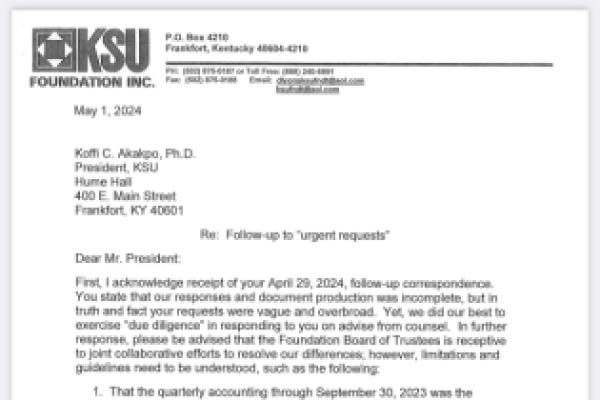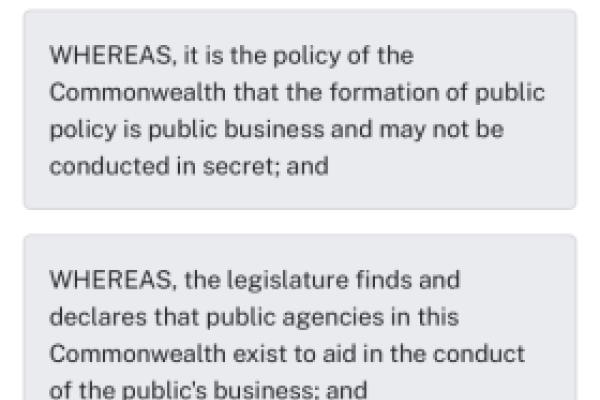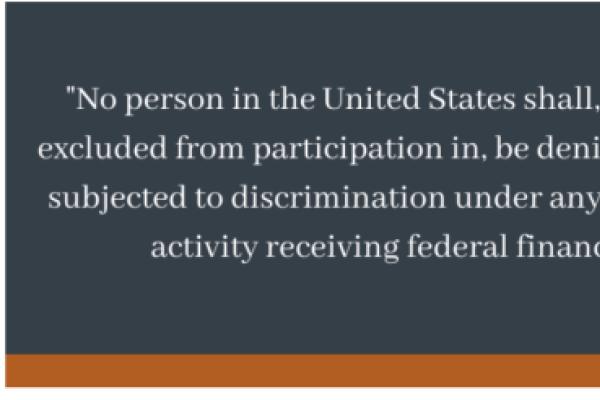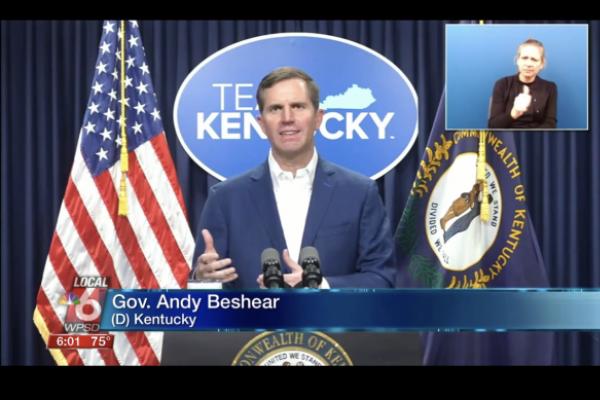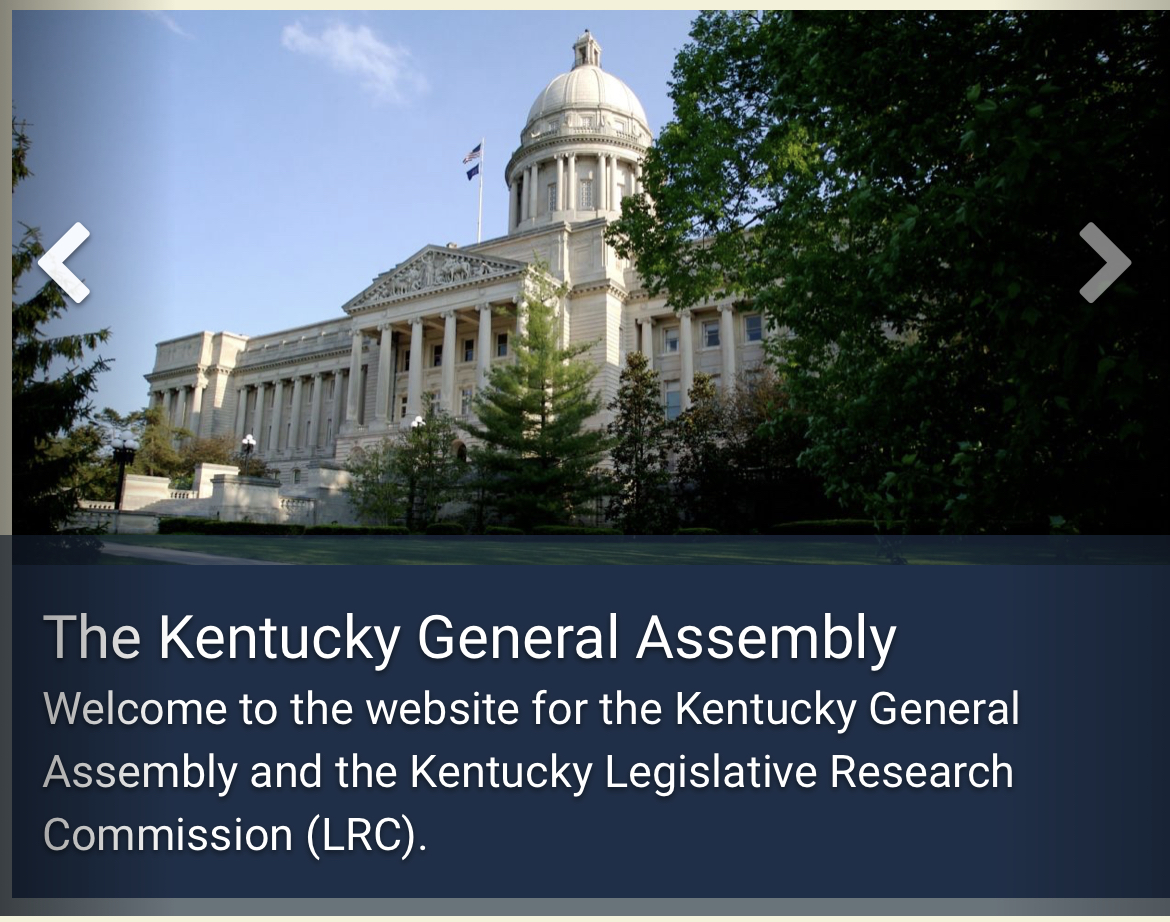
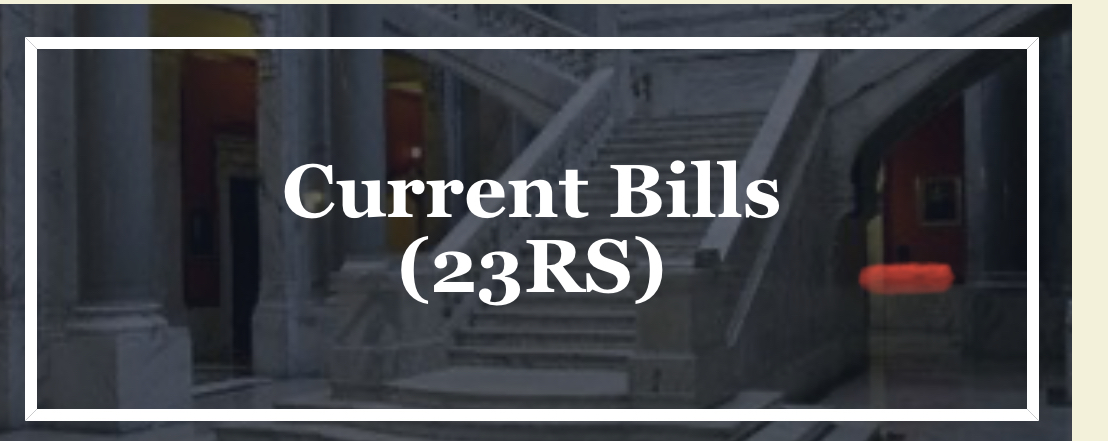
The Regular Session is upon us and hope quickly faded that lawmakers would forego open government “modifications and clarifications” in 2023.
Three bill were posted on the Legislative Research Committee website at 7:00 pm on January 3.
If enacted, two would amend the open records law and the third would rewrite the statute that currently requires hospitals and health care providers to provide one free copy of a patient’s medical records.
All are, to a lesser or greater extent, troubling.
• HB 70 (https://apps.legislature.ky.gov/record/23rs/HB70.html)
Representative Kim Banta proposes a new exception to the open records law for "Name, address, or likeness of the winner of a lottery prize with an overall gross value that exceeds seven million dollars ($7,000,000) if the prizewinner elects confidentiality pursuant to forms prescribed by the Kentucky Lottery Corporation."
If enacted, this new exception to the open records law will be codified as KRS 61.878(1)(s).
The proposed open records exception is redundant. Nearly identical language -- making the same information confidential upon request of the prize winner -- is found in HB 70's proposed amendment of the statutes dealing with the Kentucky Lottery Corporation found in Chapter 154A.
Assuming, for the sake of argument, that the existing open records privacy exception --KRS 61.878(1)(a) -- does not adequately protect the names and addresses of lottery prize winners who request anonymity, HB 70 achieves the goal of making the information confidential without creating a new open records exception. This is because the proposed amendment to Chapter 154A restricts disclosure of the prize winner's name and address and is therefore incorporated into the open records law by KRS 61.878(1)(l), authorizing nondisclosure of "Public records or information the disclosure of which is prohibited or restricted or otherwise made confidential by enactment of the General Assembly."
What harm, you ask?
Just this. Kentucky lawmakers seem hellbent on annually expanding the number of exceptions to the open records law to create reactive and idiosyncratic exceptions. In the past, new exceptions were embedded in the agency statutes to which they related and not replicated in the short list of open records exceptions available to all public agencies.
How many redundant exceptions to the open records law will we enact before we recognize how unwieldy the law has become and how wholly unnecessary they are?
• HB 51 (https://apps.legislature.ky.gov/record/23rs/HB51.html)
Representative Kim Moser proposes an amendment to a non-open records statute that has, for over two decades, ensured a patients' rights to one free copy of their medical records from a hospital or health care provider.
KRS 422.317 was enacted in the mid-90s as a result of mounting criticism of outrageous fees imposed on patients by hospitals and health care providers who outsourced copying of the patients' medical records to profit-driven vendors that demanded prohibitively excessive fees.
The current statute requires that the hospital or doctor "provide, without charge to the patient, a copy of the patient's medical record."
The current statute goes on to authorize "[a] copying fee, not to exceed one dollar ($1) per page...for furnishing a second copy of the patient's medical record upon request either by the patient or the patient's attorney or the patient's authorized representative.”
In 2009, the Kentucky Court of Appeals rejected a claim that the statute was unconstitutional, declaring "Placing this minimal burden on health care providers is rationally related to the legislature’s objective of ensuring that all patients, including the economically disadvantaged, have free access to one copy of their medical records."
http://opinions.kycourts.net/coa/2012-CA-000563.pdf
Not satisfied that "the state interest in providing medical records to patients outweighs any minor inconvenience to the providers," Rep. Moser proposes a return to those halcyon days of what will be, at least for some, cost prohibitive medical records.
HB 51 eliminates, altogether, the "first free copy" requirement and amends KRS 422.317 by authorizing hospitals and health care providers to recover "reasonable costs...not [to] exceed twenty dollars ($20) for medical records five (5) pages or less in length and one dollar ($1) per page for each page copied after the first five (5) pages and the actual cost of mailing."
There is, quite simply, no doubt that, if enacted, HB 51 will harm economically disadvantaged patients.
• SB 17 (https://apps.legislature.ky.gov/record/23rs/SB17.html)
If recent history is a reliable guide, Senator Adrienne Southworth's SB 17 is unlikely to pass.
However well-intentioned her bill, Southworth is a bit of a GOP pariah whose voice the GOP caucus seems intent on silencing.
More importantly, the bill itself is flawed.
If enacted, SB 17 requires open records training:
- of at least two hours for an employee named an official custodian within 90 days of employment or election;
- of at least two hours for employees already serving as official custodians within 12 months of the day on which SB 17 takes effect;
- of at least two hours for official custodians every two years thereafter "so long as he or she remains the official custodian";
- of at least one hour for all noncustodian employees or officers of a public agency who are employed or elected after the effective date of SB 17 and within 90 days of employment or election;
- of at least one hour for "[a]ny employee or officer of a public agency who is not an official custodian prior to the effective date" SB 17 within 12 months of the day SB 17 takes effect.
In other words, all public agency officers and employees will receive up to two hours of open records training -- no mention of open meetings training -- and official custodians will receive open records training on a recurring basis.
All training is to be conducted by the Attorney General -- or a trainer the Attorney General approves -- "in a live format, but may be conducted remotely."
SB 17 includes a definition of "open records training" at Subsection(11) of KRS 61.870:
"'Open records training' means training that includes:
(a) An overview of the legal requirements of KRS 61.870 to 61.884;
(b) The procedures and requirements for complying with a request for
information;
(c) The role of the Attorney General; and
(d) A description of penalties and other consequences for failure to comply with
KRS 61.870 to 61.884."
Clearly, Sen. Southworth has greater confidence than do we in this Attorney General staff's ability •and availability on a frequently recurring basis• to provide a live “overview" of open records requirements, including "complying with requests for [records]" -- not information, as the bill states. The open records law is a records access law -- not an information access law -- and public agencies regularly deny "requests for information."
Training is only as good as the trainer. There is substantial cause for concern when the current office holder demonstrates contempt for the body of internal agency authority that has guided the office's interpretation of the law for decades.
Moreover, if ancient history is a reliable guide, the Attorney General will bristle at the notion of reassigning open records staff from open records decision making, per KRS 61.880(2), to open records training. The competing demands -- statutorily time limited open records dispute resolution and statutorily time limited live open records training to all current and new public agency officers and employees -- create an overwhelming burden.
That idea was floated in 2004, and stakeholders agreed on the next best thing -- written materials on open records, records management, •and open meetings• to be distributed to named officials (ideally, for further internal distribution) when the open records and/or open meetings law is amended.
A bill to that effect -- sponsored by Representative Derrick Graham -- was enacted in 2005.
https://apps.legislature.ky.gov/record/05rs/HB77.htm
Those open records/meetings written materials were — in that era — drafted by experienced OAG merit staff, and approved by the Attorney General and all stakeholders, including Rep. Graham and the Kentucky Press Association. The records management materials were drafted by the Kentucky Department for Libraries and Archives and similarly vetted.
There are infinitely better ways of ensuring effective open government training for all public officers and employees that include, but do not entirely rely on, the Attorney General.
We are happy to discuss those options with Sen. Southworth or others, but we doubt that there is any real appetite for expanding public agency appreciation and understanding of the Kentucky open records and open meetings law.
PLEASE NOTE: Lexington Herald-Leader political reporter Austin Horn serves on the Board of Directors of the Kentucky Open Government Coalition, but our analysis throughout the 2023 Regular Session is not intended to suggest his endorsement of, or opposition to, pending legislation.
